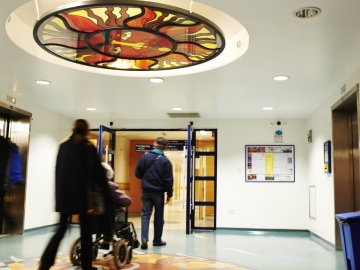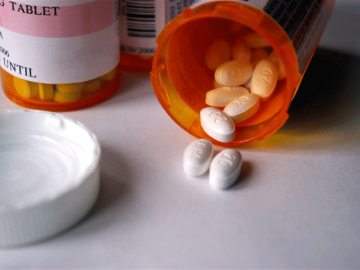Child
- About
- Meet The Team
- Conditions
- Dental Practitioners: Dental care in children at risk of Infective Endocarditis
- Looking after your child’s oral health
- Coming for an echocardiogram
- Outpatient Appointments
- Preparing to Come into Hospital for Surgery
- On Admission to the Children's Ward
- Visiting
- Operation Day
- Children's Intensive Care
- Daily Routine on Intensive Care
- Managing your child's discomfort
- Going Home
- Children's Cardiac MRI Scan
- Cardiac Catheter
- Reveal Device
- Ablation Procedure
- Pacemakers
- INR and Warfarin
- Lifestyle and Exercise Advice
- School Advice
- Attachment
- Yorkshire Regional Genetic Service
- Advice & Support Groups
- Your Views
- Monitoring of Results
- Second Opinion
Going Home
-

Click here to download our advice after surgery information
If there are any special arrangements to be made such as removal of stitches, this will be organised with your local services. After surgery, children will need to take about 4 – 6 weeks off from school. If you warn school about this they can make work available at home.
This has been written to help you prepare for caring for your child when you go home after surgery. We hope it answers some of your questions, but it is a general guide so please do not hesitate to contact the ward or specialist nurse with any questions you have.
-
Medication
Will my child have to take any tablets or medicines at home?
If your child is taking medication then this will be provided for you to take home. You will be given one week’s supply so it is important that you do not run out! You will be given a letter for your GP, which provides information about any prescriptions that need renewing.
Medicines
We try not to prescribe medicines that have to be given at school but, if needed, it is important that you discuss this with the school staff. Each school has a policy regarding the storage and administration of medicines and they will be able to advise you about this. Some medicines increase the amount of urine produced and easy access to toilet facilities should be arranged to prevent embarrassment.

-
Before your child is discharged, the nurse on the ward will discuss with you:
• What the medication is called, and what it is for
• How often you need to give your child the medicationIf your child is under one year old, you will need to sterilise the syringes that you use to give the medicines. You will be given a small supply of these from the ward and should be able to collect more from your local pharmacy.
Keep giving the medication until you are seen in the Outpatients Department and the doctor tells you to stop.
What do I do if my child vomits after I have given the medicines? DO NOT REPEAT THE DOSE! It is difficult to guess exactly how much medicine has been absorbed. Give the next dose of medicine at the normal time. If your child continues to vomit contact your GP.
-
How long will the scar take to heal?
Many things affect the length of time it takes for a wound to heal.
• Having a well balanced diet will help the process.
• Keeping the wound dry for the first few weeks; there are no objections against a regular bath or shower, although it is advisable not to soak too long in the bath for the first four weeks after surgery.
• Wound healing takes place during rest or sleep, so ensure your child gets enough rest.
• Protect the wound from damage, i.e. knocking the wound.
• Try not to poke the wound, you may cause infection.
• Do not use any dressings, creams, talc etc on the wound unless advised by your nurse or doctor
• Try not to expose the wound to direct sunlight without protection. The wound is prone to sun burn, so keep it covered, or apply total sun block (make sure the skin is not broken before applying sun block)Our surgeons use dissolvable stitches. This means there are only usually one or two stitches that need to be removed, several days after your operation.
It is quite normal to see small lengths of stitch come away from the wound. Remember that the deep stitches in the heart and chest wall are firm and secure and not affected by the changes you see around the skin.
Check the wound regularly and if your child experiences any pain, or you notice any swelling or redness, this may be a sign of infection. If you are worried or your child has any of these symptoms, please contact the children’s cardiac specialist nurse. They can discuss the wound with you and arrange for it to be assessed if necessary.
Will the scar fade?
Most scars fade to a fine line over a period of time, but this may take several months. Once the wound has healed and if your child wishes to make it less noticeable, a skin camouflage service is available at the Hospital. This is run by the British Red Cross, who provide a service by using skin-coloured make-up to cover the scar. Creams are available on prescription.
-

Patient information
Physical Activity
Most children with heart problems attend mainstream school and can join in all activities. It is important that the school staff know that they do not need to be restricted. However, some children will be limited in what they can do because of their condition and should be allowed to pace themselves and be able to rest when tired.
-
Very few children are stopped from doing P.E, but if your cardiologist has advised you against some activities, you might like one of the Cardiac Nurse Specialists to help explain this. If your child is limited in what they are able to do, and is transferring to high school, you may need to think about – the size of the school, number of flights of stairs, timetabling, provision of lockers etc.
Routine vaccinations
Unless there is a specific reason, we strongly advise that routine vaccination programmes are continued. However, allow 1 month after surgery before having any vaccinations.
When will my child see the doctor again after discharge?
Following discharge your child will be followed up in the Out-patient Department. The Cardiologist will see your child, either here at Leeds General Infirmary or at your local hospital. If you do not receive an appointment within a week or so after discharge give the specialist nurses a ring to check what is happening.
Illness
As with any child, there is the possibility that your child may become ill at school and it is important that you can be contacted. If the illness is thought to be related to your child’s heart condition we would recommend that staff follow the usual first aid procedures and get medical assistance, unless you have been advised differently by your cardiologist.
